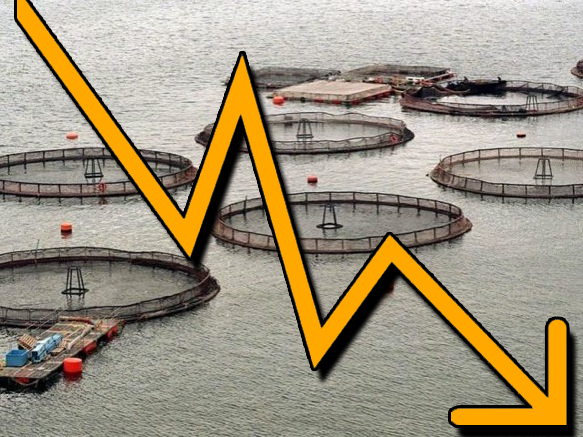Rejected Salmon Shipment: Sernapesca Accuse Russia of Protectionism
- Inicio
- Acuicultura
- Rejected Salmon Shipment: Sernapesca Accuse Russia of Protectionism
In the period of 2019 and 2020, the health authorities and veterinarians of the Russian Federation have implemented various restrictive measures against the imports of industrially farmed salmon from Chile, due to the detection of residues of prohibited substances in the shipment, such as antibiotics and antifungal chemicals.
Salmon farming companies have always disclaimed the idea that they would be utilising such substances in their production. To this day, there are six companies in the salmonid cultivation mega industry with their base in Chile on the health-red list of the Russian Federation.
Sernapesca, the Chile’s Department of Fisheries and Agriculture, is accusing Russia of protectionism.
Without considering the health-related and technical arguments, as highlighted publicly by the Russian Federal Service for Veterinary (Rosselkhoznadzor) when blocking the Chilean salmon shipments, Alicia Gallardo, director of Chile’s Department of Fisheries and Agriculture (Sernapesca), declared that Russia is implementing protectionist practices.
In an interview with Tele13 Radio, the director of Sernapesca, Alicia Gallardo, stated that «essentially, Russia is pursuing protectionism of the national industry, and because of this, increased the requirements not only for the aquaculture products but also for other agricultural goods as well as for other countries such as Norway».
In statements made to www.salmonexpert.com by David Falcón, director of sustainability, brand and reputation for the company Deloitte, claims that «going further than if this tactic has been utilized by Russia, it can respond to a unilateral decision of a country. The task of the Chilean salmon, whatever company it may be, is to deliver a product in the characteristics and conditions that the market requires».
Themes related to health, labour and environment, and their impact on the image and credibility of the Chilean salmon industry
For Falcón, the events of this nature, generate an impact for the reputation of Chilean salmon and the image of the country, more than for one company in particular.
The sanitary, environmental and labour related image of the export industry of salmon, based in Chile, is seeing a constant questioning by the civil society organisations, coastal communities, indigenous communities, and workers’ organisations.
The complicity and billions of public resources that the Chilean State gears towards unconditionally defending the industry on the international market is striking, especially with regards to aspects such as the high employment of antibiotics, antiparasitics and illegal antifungals, such as active lobbying and making available to companies the human and financial resources of the chancellery.
The blockade by the Russian Federation and its potential domino effect on the international markets
As for the conflict with the Russian health authorities, this situation reveals that as to this day there exists an explanation for the national and international consumers as to what is happening with the health standards in this export-based industry.
«The Health-and-commerce related measures of the Russian market are setting a precedent that could cause a «domino effect» for other international markets, especially in the United States and in Asia,» advised Centro Ecoceanos, with its base in Chile.
The production of salmonid in Chile is facing growing entry barriers, revealed by instances such as the current suspension of shipments to China, due to the coronavirus, and the import restrictions to the Russian Federation for health-reasons.
International consumers and «blood salmon from the end of the world»
In addition to the situation for the markets, there are the growing reports on the international markets against the so-called «blood salmon» produced in the south of Chile. This name stems from the fact that the industry sees the highest worker death rates when it comes to the global salmon industry, registering 52 deceased workers in processing plants, cultivation centres (mainly divers) and maritime and ground transport.
At the same time, consumer organisations and non-governmental organisations are informing international and domestic markets against the so called «Chilean Chemical Farmed Salmon», due to the high amount of antimicrobials, antiparasitics, antifungal substances, and colorants utilized in the production, where 90% is destined for exports,





